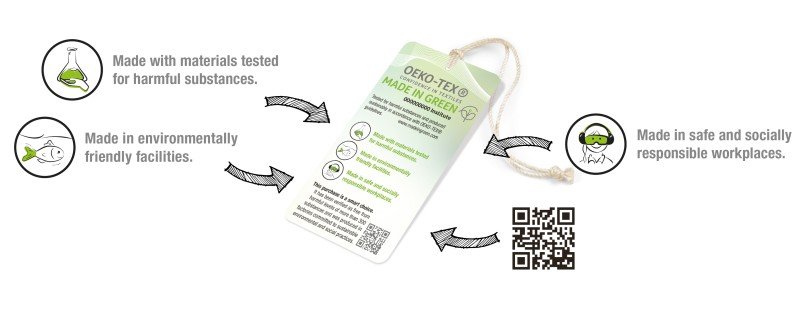
Oeko-Tex celebrates 25th anniversary
Social and environmental concerns will soon play a greater role in public procurement.

2nd October 2017
Innovation in Textiles
|
Zurich
Social and environmental concerns will soon play a greater role in public procurement. Although the aim is simple, the implementation may prove to be difficult, Oeko-Tex reports.
Given the global supply chains within the textiles industry, even experts face numerous challenges when evaluating the sustainability of uniforms and protective clothing. Due to its international nature and the sheer volume of third parties in the production chain, responsibility is increasingly placed on those releasing new textiles onto the market.
Public procurement stipulates that clothing must be safe, produced in environmentally friendly production facilities and under decent working conditions. Thanks to public procurement regulation, the adherence to such sustainability requirements can now be determined from labels. Labelled textile products offer guidance and help consumers make responsible decisions when purchasing workwear.
Since 1992, Oeko-Tex has been developing various solutions for environmentally friendly and socially responsible textiles. The guiding principles of Oeko-Tex are based on transparency, traceability, credibility and trust.
Now available on the market, Oeko-Tex certificates and labels allow textile manufacturers to prove compliance with environmental and social regulations in their production chains. Whether it is the use of chemicals in production, the continuous improvement of the supplier’s working and production conditions or the safety of the final product – it can all be independently and credibly verified with the help of the various products developed by the Oeko-Tex Association.
With the label Made in Green by Oeko-Tex, for example, procurers can even trace the production process of the finished garment. Through a bar code or the product ID on the label, the different stages of production can be viewed. The German Ministry for Economic Cooperation and Development commended the transparency that the Made in Green label offers consumers, classifying it as a “very good option”.
“Likewise, if the new legal status wishes to make procurement procedures simpler, then sustainability regulation requires a new approach,” the association explains. “Relying on a trustworthy partner is certainly advantageous.”
“For 25 years, Oeko-Tex has offered easy solutions, enabling procurers to successfully overcome the increasing demands of the market; ensuring everything from chemical management, environmentally friendly manufacturing processes and fair working conditions to labels clearly displaying product performance. The Oeko-Tex system provides the optimal basis for this as it continually refines its standards and always focused on current market developments.”

Business intelligence for the fibre, textiles and apparel industries: technologies, innovations, markets, investments, trade policy, sourcing, strategy...
Find out more